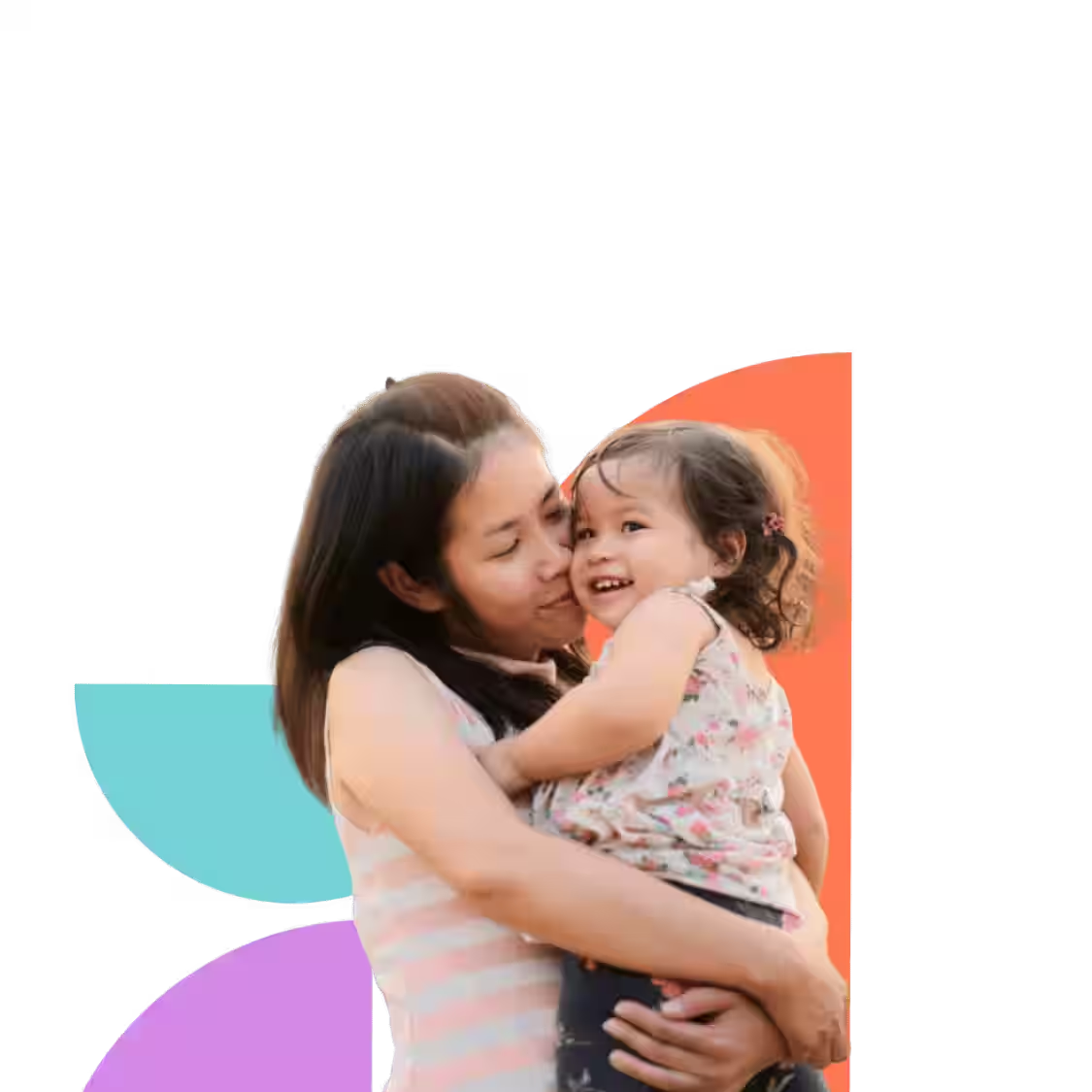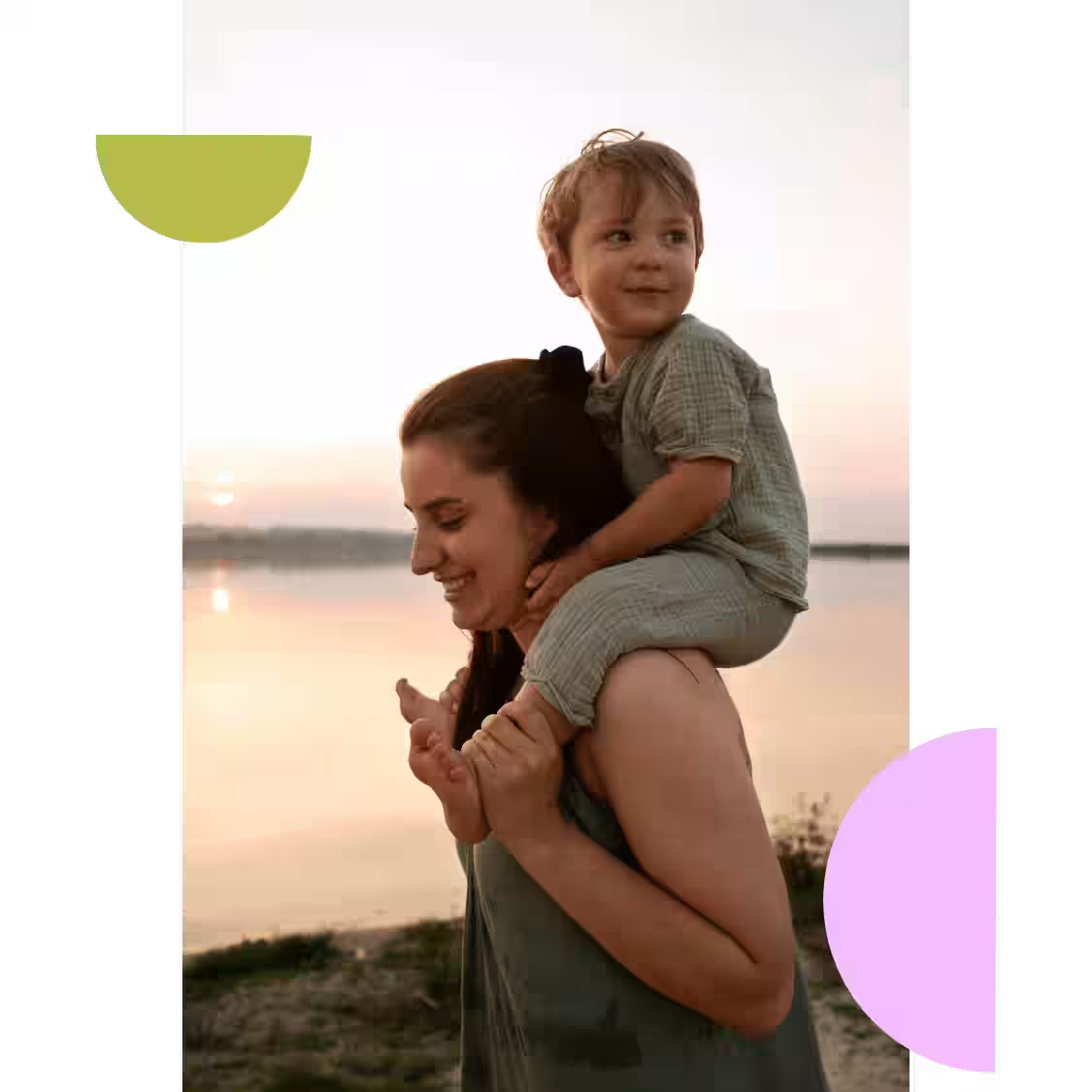Early Intervention Behaviour support
Early Intensive Behavioural Intervention (EIBI) is an evidence-based, highly structured early intervention program designed to maximise learning during the most important developmental years. As a leading EIBI therapy and early childhood ABA program, it gives children and their families a predictable pathway to progress.
EIBI provides high-frequency autism therapy and intentionally sequenced learning opportunities grounded in ABA early intervention. This helps young children build communication, social, behaviour, and early learning skills faster and more reliably — especially for children with autism spectrum disorder who benefit from intensive ABA learning models.
Parents choose EIBI because it is predictable, data-driven, and based on evidence-based autism intervention. Instead of hopeful guesswork or unstructured play, it uses proven ABA principles delivered by qualified practitioners and child behaviour specialists who understand what helps children reach their full potential.

Why Intensity Matters in EIBI
Children don’t learn new skills from once-a-week practice — they learn through hundreds of repeated opportunities embedded into their day. EIBI is built on this principle, using core elements of early behaviour intervention and applied behaviour analysis to create lasting change.
Research shows that:
- Young children retain skills more effectively with repetition and early intervention autism therapy.
- Learning is most effective when children practise skills across structured routines aligned with early years development programs.
- Skills practised intensively generalise more quickly to home, community, school, and therapy settings.
- High-frequency intervention reduces behaviours that interrupt learning and builds readiness for treatment plan goals.
Most EIBI programs recommend 15–25 hours per week — not because a child “needs more therapy,” but because more learning opportunities create stronger progress across communication, social skills, and daily living abilities.

What Children Learn Through EIBI
EIBI focuses on functional, real-world skills that directly improve a child’s ability to participate in everyday life. These align with the goals of behaviour therapy for 0-9 year olds and are delivered through structured therapy sessions and guided practice.
.svg)
Communication Development Therapy
Like responding to name; requesting items, help, breaks, and attention; following 1-step and 2-step instructions; using language during daily routines; and early expressive language and simple conversational behaviours.
.svg)
Social Skills Intervention for Children and learning behaviours
Kids in EIBI learns to turn-taking and imitation; joint attention; reading simple social cues; parallel play and early cooperative play; and understanding group expectations in early learning environments.
.png?width=82&height=82&name=Shape%2047%20(2).png)
Daily Living Skills Support ABA
Children learn daily living Skills support through Applied Behaviour Analysis (ABA) such as toileting readiness. dressing steps, hygiene routines, mealtime routines, and packing away and following home routines.

Behaviour Support
Such as reducing behaviours that interrupt learning, i mproving transitions, increasing flexibility and coping skills and developing early self-regulation strategies.
This helps parents understand exactly what EIBI autism targets and why it is such an effective structured early intervention program for young children.

Our goal is simple: to build your child’s practical toileting skills with sessions that are intentional, measurable, and aligned with your family’s goals.
Who EIBI Helps
EIBI is suited for children aged 0–9 years who may:
- Struggle with communication or play
- Find it hard to follow routines
- Experience behaviour challenges
- Need structured support to learn new skills
- Struggle with transitions or group environments
Parents often choose EIBI when they want a measurable, evidence-based early childhood behaviour therapy approach.

How EIBI Works: The Evidence-Based Model
A high-quality EIBI program Australia uses well-researched behavioural teaching methods, similar to what practitioners use in ABA therapy for young children and early intervention autism therapy.
Task Analysis
Skills are broken into small, teachable steps to help children learn gradually and confidently.
Repetition & High-Frequency Practice
Children learn through repeated practice across play, routines, and real-life activities — the foundation of an intensive ABA program.
Reinforcement
Motivation strategies keep learning enjoyable and meaningful.
Errorless Learning
Children succeed early, reducing frustration and increasing confidence.
Prompt Fading
Supports are gradually reduced, supporting independence.
Generalisation Across Settings
Skills are practised at home, school, childcare, and community environments to ensure they “stick.”
EIBI and the NDIS: Funding Pathways
Many families access EIBI through the NDIS, especially when working towards a supportive NDIS plan. Funding may be available under:
- NDIS Early Childhood Supports (0–9 years)
- NDIS Improved Daily Living
- NDIS Improved Relationships
- NDIS behaviour support for children
- NDIS early intervention autism
- NDIS behavioural therapy
- NDIS therapy funding for children
Families receive:
- NDIS-ready assessment reports
- Support with goal wording
- Recommendations for plan reviews
- Clear descriptions of EIBI intensity and expected outcomes
Our goal is to ensure your child’s supports reflect what they truly need.
.png?width=1125&height=1125&name=DAAR%20LOGO%20(21).png)
Start Early. Build Skills That Last
Early, intensive, ABA early intervention can dramatically strengthen communication, learning, and independence. Help your child build the foundation they need to flourish — Book a consultation now or call us at 02 9133 2500
Frequently Asked Questions:
How many hours of EIBI does my child need?
Most children benefit from 20–25 hours of Early Intensive Behavioural Intervention (EIBI) each week. This level of intensity gives your child enough repetition to learn, practise, and retain new skills across communication, social interaction, learning behaviours, and daily routines.
Some children may begin with fewer hours if they are very young, have behaviour challenges that need gradual introduction, or are building stamina — and then increase to a higher intensity as they progress.
How soon will we see progress?
Early progress often appears within the first 2–4 weeks, especially in areas such as attention, transitions, following simple instructions, or early communication attempts.
More complex skills — including social engagement, behavioural regulation, and pre-academic learning — typically show measurable improvements over 8–12 weeks of consistent, high-frequency EIBI.
Is EIBI suitable for children under 3?
Yes. EIBI is often most effective between ages 2–4, when brain development is at its fastest and children can make significant gains through structured, play-based learning.
Younger children with autism spectrum disorder, developmental delays, or early communication concerns benefit greatly from EIBI’s consistent routines, reinforcement systems, parent coaching, and high-frequency practice.
Starting before age 3 helps children build foundational communication, play, and learning behaviours that support long-term development.
Do parents need to participate?
Yes — parent participation is a vital component of EIBI.
Children learn fastest when parents use the same strategies taught during therapy sessions. This ensures your child practises skills in real-life situations such as mealtimes, play, community outings, or morning routines.
Parent involvement also strengthens generalisation, reduces challenging behaviours more consistently, and helps achieve better long-term outcomes.
Can EIBI be funded through the NDIS?
Yes. Many families access EIBI through the NDIS under several funding categories, including: Early Childhood Supports (0–6 years); Improved Daily Living; Improved Relationships and Capacity Building Supports.
EIBI is recognised as an evidence-based, intensive early intervention model, and providers can supply NDIS-ready assessment reports, goal wording, and progress documentation to support your child’s NDIS plan.
Call Us
-
NDIS Autism Support in Austral
-
NDIS Autism Support in Bankstown
-
NDIS Autism Support in Bass Hill
-
NDIS Autism Support in Cabramatta
-
NDIS Autism Support in Campsie
-
NDIS Autism Support in Canterbury
-
NDIS Autism Support in Carlton
-
NDIS Autism Support in Hurstville
-
NDIS Autism Support in Kingsgrove
-
NDIS Autism Support in Kogarah
-
NDIS Autism Support in Liverpool
-
NDIS Autism Support in Mortdale
-
NDIS Autism Support in Narwee
-
NDIS Autism Support in Punchbowl
-
NDIS Autism Support in Revesby
-
NDIS Autism Support in Riverwood
-
NDIS Autism Support in Rockdale
-
NDIS Autism Support in Campbelltown
Get access to quality, Efficient, and professional care.
Request a call to find out how daar can help you achieve your health goals.
Leading source of information for allied health news, studies and resources.
We support you to be self-determined and independent, giving you the control and freedom to achieve your individual goals
We provide superior quality, client-centric and innovative treatment to support you to realise your full potential


















